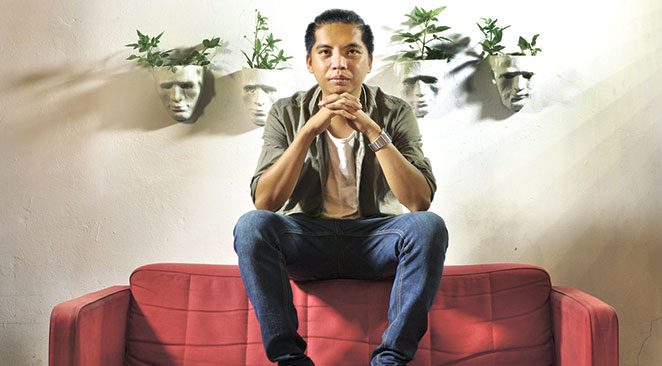Getting real with the reel
Filmmaker Remton Zuasola can handle the truth
By Fiona Patricia S. Escandor
REMTON Siega Zuasola likes keeping his scripts to himself. Usually he would just explain the situation to the actors and let them create the dialogue from there — a technique that’s tricky to pull off, but when done right does away with the monotony of memorization. It affirms his penchant for spontaneity, and why his films, over the years, have been recognized for their candid narratives.

The 30-year-old director has brought pride to Cebu for having received wide acclaim for his work, and for being a part of those who helped breathe life back to local cinema. With stories inspired by real scenes in his hometown, his films have gathered awards from prestigious bodies such as the Jeonju Festival in South Korea, the Jogja Festival in Indonesia, and the country’s own Gawad Urian and CineManila.

Truthfulness, Remton said, is the defining factor of his work, and what has led it to capture a large audience. He borrows from the experiences of real people and immortalizes these on film, also consciously shying away from using “intellectual” conversations and big words that drive away the everyday viewers. “I tell it as truthfully as I can and I want it to be as unpretentious as possible,” he said. “I want it to be understood by all.”
The involvement of the cast also has a huge part in the story development as well, and this is attributed to him, also having started as an actor. When he was in high school, he was an active member of his parish’s community theater. “I was immersed in performing and behind-the-scenes works there,” he said. “And it was also what sparked my interest to enter film production.”
Accolades
Remton pursued advertising in college, where he had his share of creating short films and 30-second commercials. Further inspired by the works of Pedro Almodovar, Wong Kar-Wai and Alfonso Cuaron, he then took short courses in method acting and directing at the International Academy of Film & Television, which back then was still in its old campus along Ramos. St.
Remton’s first feature-length film was the award-winning “And Damgo ni Eleuteria,” an ambitious film about an island girl who decides to marry a foreigner – ambitious because it boasts of being the first in Asia that was shot in one take, the entire one hour and a half of it. The film received several awards, including the Special Jury Prize at the Jeonju Film Festival.
His other notable works include the short “To Siomai Love,” a story of romance set in the famous siomai stalls in Tisa, and “Ritmo,” which is about a young rebel living in the mountain areas. Remton’s latest work, “Aftershock,” also garnered most of the awards, including best short film, best direction and best story in this year’s Sinulog Film Festival.

Except for Damgo, Remton wrote the screenplay for all his films. “I get ideas from being observant of those around me. Kung sa Bisaya pa, himantayon,” he said. “The Cebuano spirit and zest for life is really something,” he added, saying this is partly the reason he decided to remain in Cebu.
For his contribution to Cebuano cinema, Remton was a recipient of the “Garbo Sa Sugbo” (Pride of Cebu) citation by the Province of Cebu, followed by an “Ani ng Dangal” citation given by the Office of the President of the Philippines and the National Commission of Culture and the Arts, both in 2012.
Getting there
Cebuano cinema has a long way to go for it to achieve mainstream popularity, nevertheless Remton said he is ecstatic with how the industry has grown since he and his contemporaries started about 10 years ago. “At that time, everybody knew each other. We supported each other by working on each other’s films,” he said.
“Karon mas alegre na. There are many new filmmakers with great works. This month alone, I have three invitations to watch student film festivals, and I really enjoy seeing what the new generation offers,” he said.
Photography: Matt Ophirus



